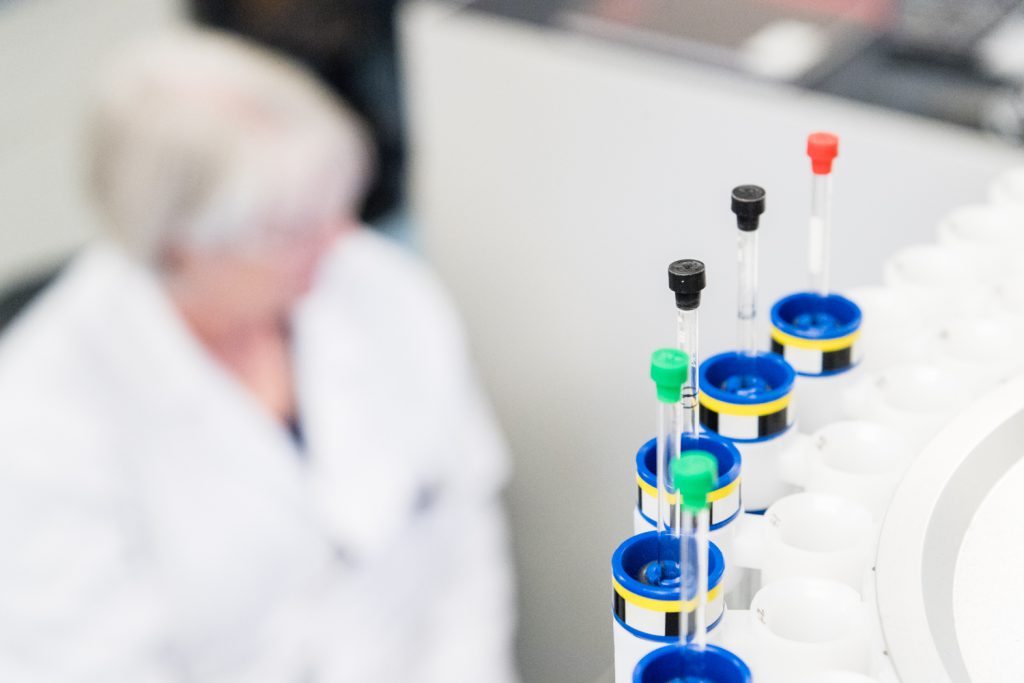What is MND
Find support
I have MND
I am supporting someone
Get involved
Research
About MND Scotland

MND Scotland will be funding three unique studies which will cover MND genetics, the effect behavioural symptoms have on carers, and exploring the development of a telehealth system for people affected by Motor Neurone Disease.
The studies will be based at the University of St Andrews, the University of East Anglia, and the University of Sheffield respectively.
Craig Stockton, Chief Executive of MND Scotland, said: “I’m delighted to that we will be working with Judith Sleeman, Eneida Mioshi, Esther Hobson and Christopher McDermott to take forward their research projects.
“MND Scotland’s vision is of a world without MND and, in the meantime, to improve the quality of life for those affected by MND – including family carers. A big part of making progress is through MND research which is why we have committed £2.6 million in various studies to help make this progress a reality.
“I look forward to working with our new researchers in the hope that together we can learn more about Motor Neurone Disease and improve the lives of those affected by MND.”

Dr. Judith Sleeman, University of St Andrews
We know that there are a variety of genetic factors which could influence whether someone develops MND or not, with a number of gene mutations having been discovered, but we don’t yet know how cells are actually damaged. Without knowing this key part of the puzzle, developing therapies is very difficult.
The most important roles in cells are carried out by proteins. Many proteins, including those involved in MND, have a number of different functions and need to be in specific parts of the cell to carry out these functions properly. The location of proteins within cells, and their behaviour, is influenced by chemical changes – including a process called ‘methylation’.
A variety of different MND gene mutations are thought to affect methylation of proteins in cells. The protein produced by the FUS gene, which is mutated in some cases of MND, is methylated differently in MND patients. We have now shown that this mutated form of FUS can also alter the methylation of other proteins in the cell. The team will investigate changes in protein methylation seen in MND and will aim to discover how these changes could cause damage in MND.

Prof. Eneida Mioshi, University of East Anglia
We know that around 50% of people with MND experience some behavioural symptoms, including apathy (a lack of motivation), disinhibition (lack of control of impulsiveness) and rigidity (difficulty switching between different thoughts). The symptoms seem to relate to a rare form of dementia, frontotemporal dementia (FTD), which is observed in some people with MND at varying intensities.
This new project will investigate if and how these behavioural symptoms have a negative effect on anticipatory grief in their family. Anticipatory grief, or grief that occurs before death, is common among people who are facing their eventual death, or the death of a loved one.
Behavioural symptoms in MND can lead to greater worry and distress in family members, including their experience of anticipatory grief.
If we can understand these processes, health professionals may be able to suggest coping mechanism or therapy options with high risk families for optimal management. Furthermore, the study will also reveal key areas of family caregiver needs during bereavement that can be addressed with specific coping strategies or early interventions.
Developing Telehealth in MND
Dr Esther Hobson & Prof Christopher McDermott, University of Sheffield
People with MND often live in remote areas, meaning that access to regular catch-ups with their health specialists are less frequent, or that long journeys into clinic are required.
In partnership with people living with MND in Yorkshire, Dr Hobson and Professor McDermott have developed a prototype app called TiM (Telehealth in MND) which allows people with MND and their carers to monitor their condition at home. The information is also sent to the MND care team who can see how the patient is doing and immediately act on any problems.
The system aims to improve communication between patients, carers, and their care providers, so that the quality of life for people with MND can be maintained at a high standard.
New funding from MND Scotland will enable the team to develop the app further, working with people with MND across Scotland and England, to fit in with NHS services around the UK. The team will also link the system with Scotland’s CARE-MND platform, which monitors and audits the provision of care for people with MND nationally.
If you’re interested in learning more about MND Scotland-funded research projects, please contact our Education and Research Officer, Steven Karlsson-Brown, at steven@mndscotland.org.uk or call on 0141 332 3903. You can also learn more about our research at www.mndscotland.org.uk/research
Sign up
for newsletter
Get the latest news and events straight to your inbox.
You can help create a world without MND